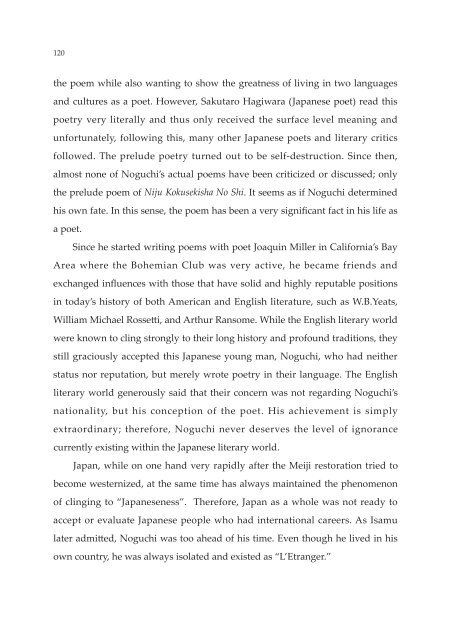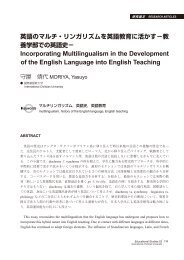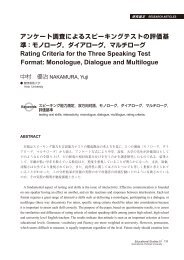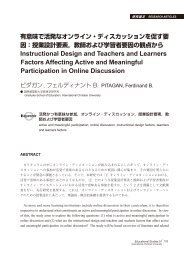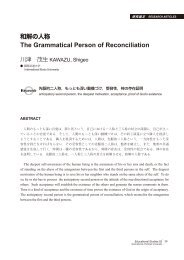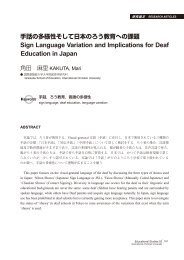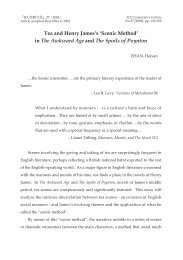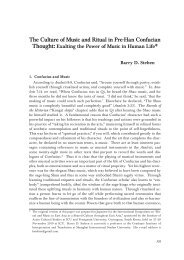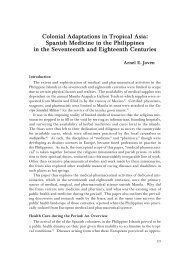Create successful ePaper yourself
Turn your PDF publications into a flip-book with our unique Google optimized e-Paper software.
120<br />
the poem while also wanting to show the greatness of living in two languages<br />
and cultures as a poet. However, Sakutaro Hagiwara (Japanese poet) read this<br />
poetry very literally and thus only received the surface level meaning and<br />
unfortunately, following this, many other Japanese poets and literary critics<br />
followed. The prelude poetry turned out to be self-destruction. Since then,<br />
almost none of Noguchi’s actual poems have been criticized or discussed; only<br />
the prelude poem of Niju Kokusekisha No Shi. It seems as if Noguchi determined<br />
his own fate. In this sense, the poem has been a very significant fact in his life as<br />
a poet.<br />
Since he started writing poems with poet Joaquin Miller in California’s Bay<br />
Area where the Bohemian Club was very active, he became friends and<br />
exchanged influences with those that have solid and highly reputable positions<br />
in today’s history of both American and English literature, such as W.B.Yeats,<br />
William Michael Rossetti, and Arthur Ransome. While the English literary world<br />
were known to cling strongly to their long history and profound traditions, they<br />
still graciously accepted this Japanese young man, Noguchi, who had neither<br />
status nor reputation, but merely wrote poetry in their language. The English<br />
literary world generously said that their concern was not regarding Noguchi’s<br />
nationality, but his conception of the poet. His achievement is simply<br />
extraordinary; therefore, Noguchi never deserves the level of ignorance<br />
currently existing within the Japanese literary world.<br />
Japan, while on one hand very rapidly after the Meiji restoration tried to<br />
become westernized, at the same time has always maintained the phenomenon<br />
of clinging to “Japaneseness”. Therefore, Japan as a whole was not ready to<br />
accept or evaluate Japanese people who had international careers. As Isamu<br />
later admitted, Noguchi was too ahead of his time. Even though he lived in his<br />
own country, he was always isolated and existed as “L’Etranger.”


